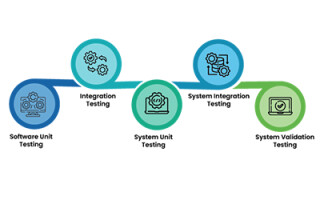Electronics Business Travel in the Coronavirus Era
May 26, 2020
Blog

Crises tend to leave permanent social change in their wake. We still seek human interaction, but the boundaries of what is acceptable shift.
After flying around the world for business, I’m stuck at home only able to count my frequent flyer miles. After the coronavirus pandemic, their status and value will change. Business travel will never be the same again.
For those like me on the commercial side of the globalized embedded electronics business, travel was a routine part of my week. My company has customers worldwide. “Go meet the customer” remains a mantra unchanged from the day of the traveling door-to-door salesperson.
The pandemic stopped all that for now. Crises tend to leave permanent social change in their wake. We still seek human interaction, but the boundaries of what is acceptable shift. I’ve seen more home offices on screen in the last few weeks than in the previous decade combine.
We are all Webcalling, Zooming, and WhatsApping to keep the wheels of our enterprises turning like teenage social media junkies. Surely, when travel becomes possible, we will ask more sharply if it is necessary? And if we travelers don’t, our colleagues holding the purse strings will.
I entered “lockdown” from an unusual perspective being already “grounded” for personal reasons and wondered how I could keep doing my job? Global lockdowns bizarrely made my job easier! This showed me that once everyone agrees to drop the convention that face-to-face meetings are the only “proper” way to do things, then the webcall ceases to be "poor relations."
Individual meetings, conferences, and industry gatherings have been cancelled or postponed. Many events were already struggling for relevance in the online age. Why wander round exhibition stands when a search engine can answer your question instantly? It seems likely that many will never return.
How will the business travel industry emerge from a multi-month global shutdown? Some airlines built on an assumption of ever-expanding demand will collapse. Capacity in the skies will shrink. Prices may rise as services slowly resume. Stories of people trapped in foreign lands or on cruise ships will weigh on demand for some time.
Nor will there be a dramatic “all-clear” siren, like the end of an air-raid, after which we just return to the good old ways. Countries will emerge one-by-one, whilst perhaps still banning entrants from other countries. Restrictions will be lifted cautiously and perhaps later reversed if new outbreaks occur or the virus becomes seasonal. We will maintain our new methods of working well beyond the immediate “maximum alert” stage.
In the post-coronavirus era of business travel, at what point in a business relationship will we physically meet our clients or partners in Slovakia or Japan, if at all? If yes, with increasing concern for our carbon footprint, will we see business travel through a “Greta Thurnberg-like filter”? Will our mental scales weighing the benefits of physical visits against the costs – and risks – be permanently recalibrated?
What will the business travel crisis mean for my frequent flyer miles? My collection will shrink with the restructuring of the airline industry. Airlines may fight harder to retain my loyalty and further improve their customer service. Alternatively, it might hasten the trend towards a low-cost “pay for every item” model as airlines ruthlessly adapt to this brave new world.
There were many aspects of my old globe-trotting life I liked. I enjoyed meeting new people; experiencing different places, cultures, and cuisines; or evening walks around a new city. And quite a few I didn’t: the jet lag, the lonely nights in a hotel room, and, of course, that carbon footprint guilt.
People have travelled since the dawn of our species. That’s why we are spread all over the globe. When this is all over, we will travel again. We are having a major “reset” in our assessment of the value of business travel. What will emerge is a more limited, focussed business travel culture.
Nick Wood is sales & marketing director at Insight SiP.




